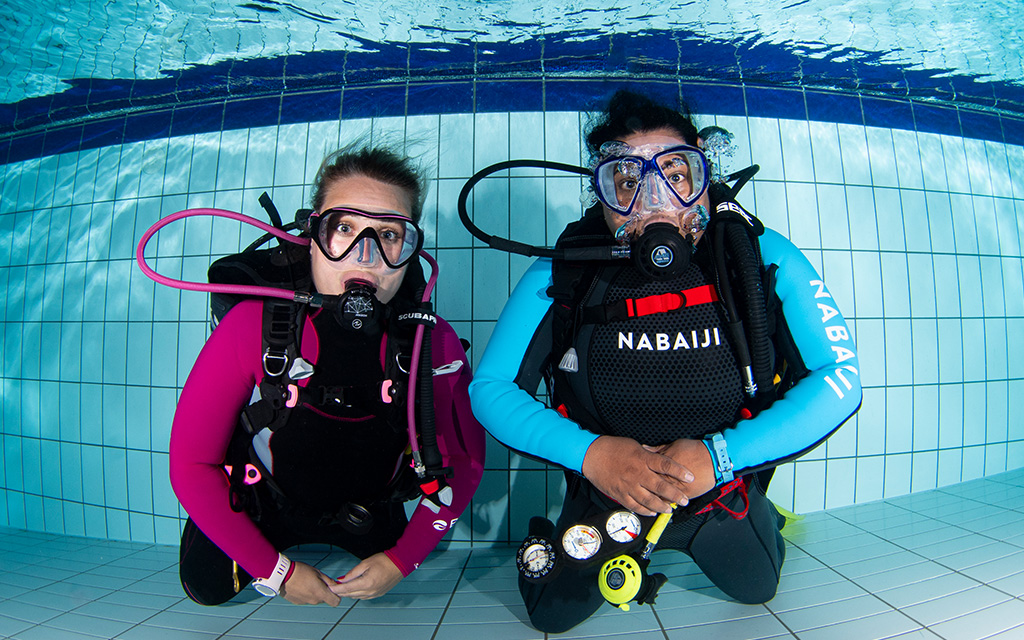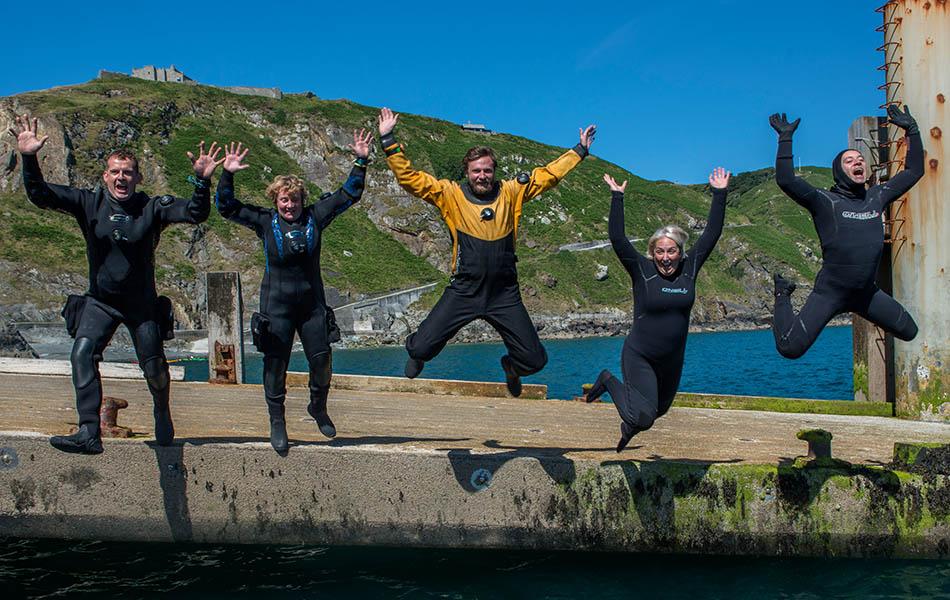
World Mental Health Day highlights the importance of mental health and encourages people around the globe to talk and share their experiences, worries or feelings.
At BSAC we strive to encourage our network of divers, snorkellers and volunteers to keep the conversation going, to check in and to know it’s okay not to be okay.
BSAC recognises the need to look after our mental health and here are some of the ways scuba diving can play its part in positive mental health.
Be part of a community and tackle loneliness
Joining a BSAC club is a fantastic way to meet people and to join in on club nights and events. Being part of the BSAC community can help tackle feelings of loneliness and isolation. By joining a network of like-minded people, members can feel supported, involved and needed.
Volunteering for your BSAC club as a diving instructor and giving back to your diving community can have many mental health benefits, volunteering can boost self-esteem, reduce stress and combat depression. Learn more about how to become a diving instructor with your club.
Improve your physical health
Health studies have found a correlation between physical health and mental health, which is why it is so important to look after both your mind and your body. Both scuba diving and snorkelling can improve physical fitness with strength building, flexibility and lowering blood pressure to name a few.
Despite often moving slowly underwater or on the surface, you’re constantly swimming and using core muscles to keep trim (horizontal and streamlined). Turns out, you’re actually doing a lot more than you thought you were doing!
Reduces symptoms of anxiety, depression and insomnia
Divers often report reduced symptoms of anxiousness and depression from scuba diving. According to a study carried out by the University of Sheffield Medical School in 2018 they found that scuba diving can offer therapeutic benefits to military veterans who experienced physical and psychological injuries as a result of combat.
Participants reported an improvement in levels of anxiety, depression and social functioning, and a reduction in insomnia, following their involvement in organised scuba diving activities.
A form of meditation
With controlled deep breathing and listening to the sound of your breath, scuba diving has been linked as a form of meditation and mindfulness. According to the Mental Health Foundation, Mindfulness is a way of paying attention to the present moment, using techniques like meditation, breathing. It helps us become more aware of our thoughts and feelings so that, instead of being overwhelmed by them, we’re better able to manage them.
Water therapy and nature
Neuro-physiologist Dr. John C. Lilly proved that weightlessness can put the body into a state of total relaxation and subsequently invented floatation therapy in 1954. Similarly, to scuba diving the feeling of being underwater has a meditative state and promotes relaxation and calmness.
Studies have also shown that being immersed in nature can have a positive impact on our mental well-being. Mark Rowland, CEO of Mental Health Foundation, says:
Nature is so central to our psychological and emotional health, that it’s almost impossible to realise good mental health for all without a greater connection to the natural world. Nature is our great untapped resource for a mentally healthy future.

Mental Health Awareness Day!
Learn more about the important work that the Mental Health Foundation are involved with.
Talk to someone and get help with the Mental Health Foundation support page.




